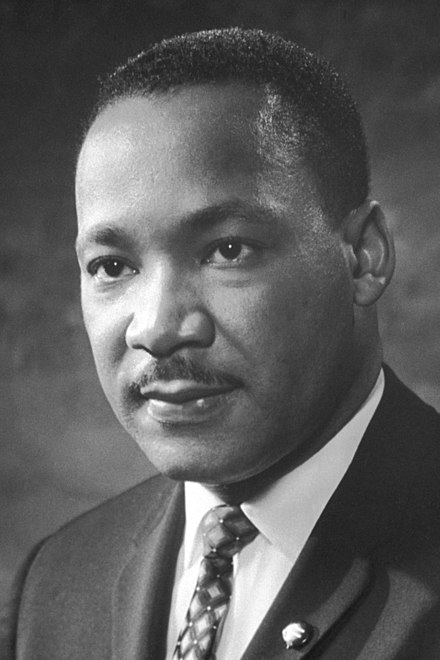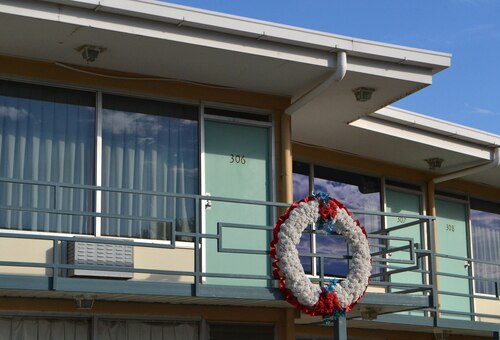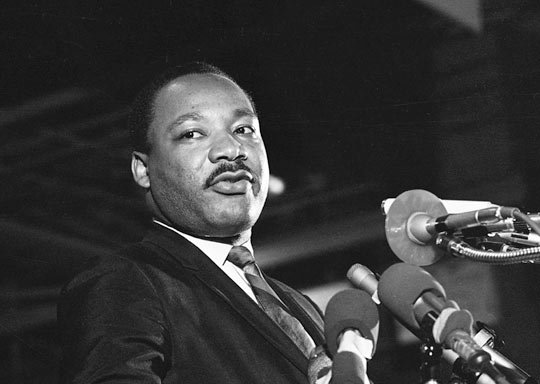Remembering Dr. Martin Luther King Jr.
January 17, 2025

As a historian, I have the habit of collecting old books, magazines, and artifacts of the past. In my own thinking, we rarely understand where we are now unless we have a deeper knowledge of the past and thus, how we got here. I am a basketball fan and a lifelong fan of the Phoenix Suns. If you look on my bookshelves you will find a LIFE magazine from May 16, 1969. In that magazine is an article entitled “The Exile of Connie Hawkins.” In 1968, the Phoenix Suns were an expansion franchise and after losing the coin toss for the first draft choice (and the right to choose future Hall of Famer Kareem Abdul Jabbar, who went to the Milwaukee Bucks) the NBA “gave” one of the greatest past basketball players – Connie Hawkins – to the Suns. Hawkins, who grew up on the streets of Brooklyn, had been exiled from both college and the NBA for allegedly aiding gamblers in his city, an accusation that was never proven. The article detailed how Hawkins, an African-American, had been accused of fixing games. After roughly eight years of “exile,” he received some exoneration and was admitted to the NBA through the Phoenix Suns. In many ways, the article suggested that Hawkins' story was one that was the consistent result of a culture that had relegated African-Americans to second-class status.
It was only recently that I noticed that one of the front page headlines in that same magazine asked “Would More Blacks Be Harmful to Your School?” That was hard to read. The magazine was issued in May of 1969, 15 years after Brown v. Board of Education. You might have assumed that the Supreme Court had resolved that issue already. LIFE magazine clearly illustrated that moving America to a place where people were not discriminated against because of the color of their skin would be a difficult task.
 Just a little more than a year before this issue was published, Martin Luther King Jr. was shot and killed on his hotel balcony in Memphis, Tennessee. I was 10 years old at the time and only remember asking myself the question: “why would someone shoot Martin Luther King? He seemed like a man everyone would embrace!” The naivete of a 10-year-old. Dr. King had been leading the Civil Rights Movement for more than a decade and was in Memphis in support of local African-American sanitation workers. The night before his death he had given a speech we have come to know as the “Mountaintop Speech.” As I reread that today I was impressed with his vision for positive change – “We aren't engaged in any negative protest and in any negative arguments with anybody. We are saying that we are determined to be men. We are determined to be people. We are saying that we are God's children. And that we don't have to live like we are forced to live.” His was a God-given vision rooted in the commitment that all people are creations of God and deserve freedom and opportunity. We would hope that his vision has been recognized as our vision.
Just a little more than a year before this issue was published, Martin Luther King Jr. was shot and killed on his hotel balcony in Memphis, Tennessee. I was 10 years old at the time and only remember asking myself the question: “why would someone shoot Martin Luther King? He seemed like a man everyone would embrace!” The naivete of a 10-year-old. Dr. King had been leading the Civil Rights Movement for more than a decade and was in Memphis in support of local African-American sanitation workers. The night before his death he had given a speech we have come to know as the “Mountaintop Speech.” As I reread that today I was impressed with his vision for positive change – “We aren't engaged in any negative protest and in any negative arguments with anybody. We are saying that we are determined to be men. We are determined to be people. We are saying that we are God's children. And that we don't have to live like we are forced to live.” His was a God-given vision rooted in the commitment that all people are creations of God and deserve freedom and opportunity. We would hope that his vision has been recognized as our vision.
 At the end of his speech that evening he recognized that a number of people had sought to end his life. He reflected on the future,
At the end of his speech that evening he recognized that a number of people had sought to end his life. He reflected on the future,
“Well, I don't know what will happen now. We've got some difficult days ahead. But it doesn't matter with me now. Because I've been to the mountaintop. And I don't mind. Like anybody, I would like to live a long life. Longevity has its place. But I'm not concerned about that now. I just want to do God's will. And He's allowed me to go up to the mountain. And I've looked over. And I've seen the promised land. I may not get there with you. But I want you to know tonight, that we, as a people, will get to the promised land. And I'm happy, tonight. I'm not worried about anything. I'm not fearing any man. Mine eyes have seen the glory of the coming of the Lord.”
We celebrate Dr. King’s life and accomplishments. Surely, in the pantheon of American leaders, he is one of our greatest. He was motivated by his commitment to God and to justice. His methods were non-violent and his vision was positive in spite of the challenges he and the African-American community faced. May we be reminded today that our mission is focused on helping students more clearly understand God’s call on their lives and to bring God’s kingdom values to their communities. Whatever the future holds for us, may it be said that we stood firm for Christ and that we carried the message of the Kingdom to all who would hear.